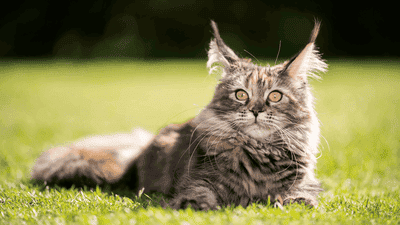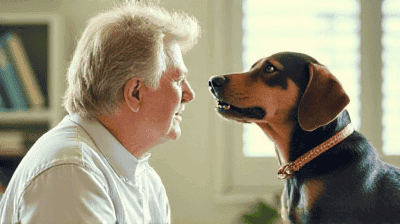
The Labrador Retriever is one of the most beloved dog breeds in the world, known for its friendly nature, intelligence, and versatility. Whether as a family pet, a service dog, or a working companion, Labs have earned their reputation as loyal and affectionate companions. However, owning a Labrador Retriever comes with its own set of responsibilities.
1. A Brief History of the Labrador Retriever
Origins
The Labrador Retriever originated in Newfoundland, Canada, where they were originally known as St. John’s dogs. These dogs were prized for their ability to retrieve fish and nets from the icy waters of the North Atlantic. British explorers brought the breed to England in the 19th century, where they were refined into the modern Labrador we know today.
Popularity
Labradors gained popularity for their versatility and gentle temperament, making them ideal for hunting, search and rescue, and as family pets. Today, they consistently rank as the most popular dog breed in many countries, including the United States.
2. Characteristics of the Labrador Retriever

Physical Traits
- Size: Medium to large breed; males typically weigh 65-80 pounds, while females weigh 55-70 pounds.
- Coat: Short, dense, and water-resistant; comes in three colors: black, yellow, and chocolate.
- Lifespan: 10-12 years on average.
Temperament
- Friendly: Labs are known for their outgoing and sociable nature.
- Intelligent: They are highly trainable and excel in obedience and agility training.
- Energetic: Labs are active dogs that thrive on physical activity and mental stimulation.
- Affectionate: They form strong bonds with their families and are great with children and other pets.
3. Choosing a Labrador Retriever
Finding a Reputable Breeder
When choosing a Labrador puppy, it’s essential to work with a reputable breeder who prioritizes health and temperament. Ask for health clearances and meet the puppy’s parents to ensure they are well-cared for.
Adopting a Lab
Many Labs are available for adoption through shelters and rescue organizations. Adopting an adult dog can be a great option, as their personality and temperament are already established.
Puppy vs. Adult
Consider your lifestyle when deciding between a puppy and an adult dog. Puppies require more time and patience for training, while adult dogs may already have some training and be calmer.
4. Essential Care Tips for Labrador Retrievers

Diet and Nutrition
- High-Quality Food: Feed your Lab a balanced diet formulated for their age, size, and activity level. Choose high-quality kibble or wet food with real meat as the primary ingredient.
- Portion Control: Labs are prone to obesity, so it’s important to measure their food and avoid overfeeding.
- Avoid Table Scraps: Human food can lead to weight gain and digestive issues. Stick to dog-safe treats in moderation.
- Hydration: Provide fresh water at all times, especially after exercise.
Exercise Requirements
- Daily Activity: Labs are energetic dogs that need at least 1-2 hours of exercise daily. Activities like walking, running, swimming, and playing fetch are ideal.
- Mental Stimulation: Provide puzzle toys, training sessions, and interactive games to keep their minds engaged.
- Socialization: Labs thrive on interaction with people and other dogs. Regular playdates or trips to the dog park can help them stay happy and social.
Grooming
- Brushing: Brush your Lab’s coat weekly to remove loose hair and reduce shedding. Use a slicker brush or grooming mitt.
- Bathing: Bathe your Lab every 6-8 weeks or as needed. Use a gentle dog shampoo to avoid drying out their skin.
- Nail Trimming: Trim their nails every 3-4 weeks to prevent overgrowth and discomfort.
- Ear Care: Check their ears weekly for signs of infection, such as redness or odor. Clean with a vet-approved ear cleaner if necessary.
- Dental Care: Brush their teeth 2-3 times a week to prevent dental issues. Dental chews and toys can also help maintain oral health.
Training and Socialization
- Basic Commands: Start training early with commands like sit, stay, come, and heel. Labs are eager to please and respond well to positive reinforcement.
- Crate Training: Use a crate to provide a safe space for your Lab and help with housebreaking.
- Leash Training: Teach your Lab to walk calmly on a leash to prevent pulling and ensure safe outings.
- Socialization: Expose your Lab to different people, animals, and environments to build confidence and reduce anxiety.
5. Health Considerations for Labrador Retrievers
Common Health Issues
- Hip and Elbow Dysplasia: A genetic condition that affects the joints, causing pain and mobility issues. Regular vet checkups and maintaining a healthy weight can help manage this condition.
- Obesity: Labs are prone to overeating, which can lead to joint problems, diabetes, and heart disease. Monitor their diet and provide regular exercise.
- Ear Infections: Their floppy ears can trap moisture, leading to infections. Keep their ears clean and dry.
- Progressive Retinal Atrophy (PRA): A genetic eye condition that can lead to blindness. Regular eye exams can help detect this early.
- Exercise-Induced Collapse (EIC): A condition that causes weakness or collapse after intense exercise. Avoid overexerting your Lab.
Preventative Care
- Vaccinations: Keep your Lab up to date on core vaccines, such as rabies, distemper, and parvovirus.
- Parasite Control: Use flea, tick, and heartworm preventatives as recommended by your vet.
- Regular Checkups: Schedule annual vet visits for routine exams and bloodwork to catch potential issues early.
6. Living with a Labrador Retriever

Family Life
Labs are excellent family dogs and get along well with children and other pets. They are patient and gentle, making them ideal companions for households of all sizes.
Apartment Living
While Labs are adaptable, they thrive in homes with access to outdoor space. If you live in an apartment, ensure your Lab gets plenty of exercise and mental stimulation.
Travel and Outings
Labs love adventures and are great travel companions. Whether hiking, camping, or road-tripping, your Lab will enjoy being by your side. Always bring water, food, and a leash on outings.
Separation Anxiety
Labs are social dogs that can develop separation anxiety if left alone for long periods. Provide toys and create a routine to help them feel secure. Consider a dog walker or pet sitter if you’re away frequently.
7. Fun Activities for Labrador Retrievers
Swimming
Labs are natural swimmers and love the water. Take them to a lake, beach, or pool for a fun and refreshing activity.
Fetch
A game of fetch is a great way to burn off energy and bond with your Lab.
Agility Training
Labs excel in agility courses, which provide both physical and mental challenges.
Therapy Work
Their gentle nature makes Labs excellent therapy dogs. Consider training your Lab to visit hospitals, schools, or nursing homes.
8. Why the Labrador Retriever is the World's Most Popular Breed
Versatility
Labs are incredibly versatile, excelling in various roles such as service dogs, search and rescue dogs, and hunting companions.
Loyal Companionship
Their affectionate and loyal nature makes them wonderful family pets and lifelong friends.
Adaptability
Labs can adapt to a variety of living situations and lifestyles, from active outdoorsy households to laid-back families.
Intelligence
Their intelligence and trainability make them easy to work with and a joy to have around.
Conclusion
The Labrador Retriever is a remarkable breed that brings joy, love, and companionship to countless households. By understanding their needs and providing proper care, you can ensure your Lab lives a happy, healthy, and fulfilling life. Whether you’re a first-time dog owner or a seasoned pet parent, the Lab’s friendly disposition and boundless energy make them a perfect addition to any family. Remember, a well-cared-for Labrador is a happy Labrador, and their loyalty and affection will undoubtedly enrich your life for years to come.






